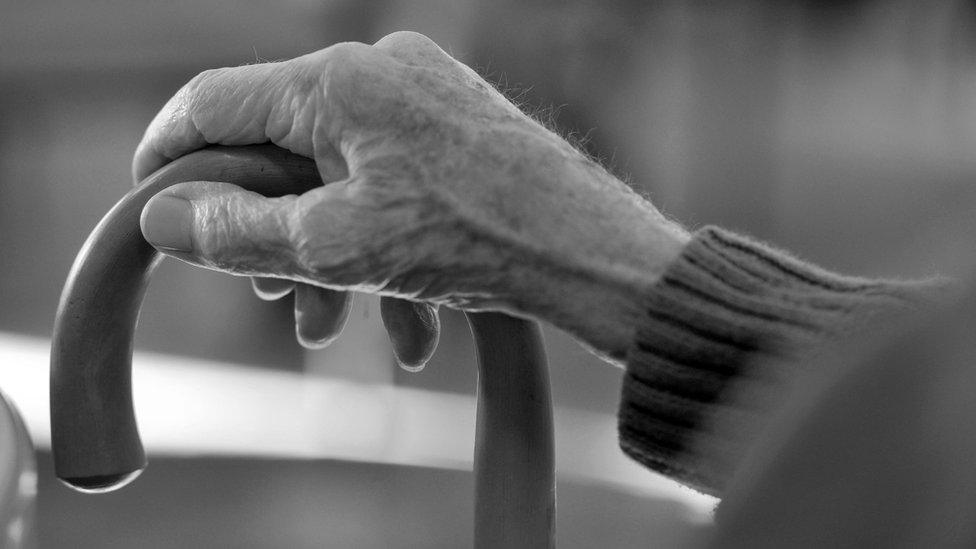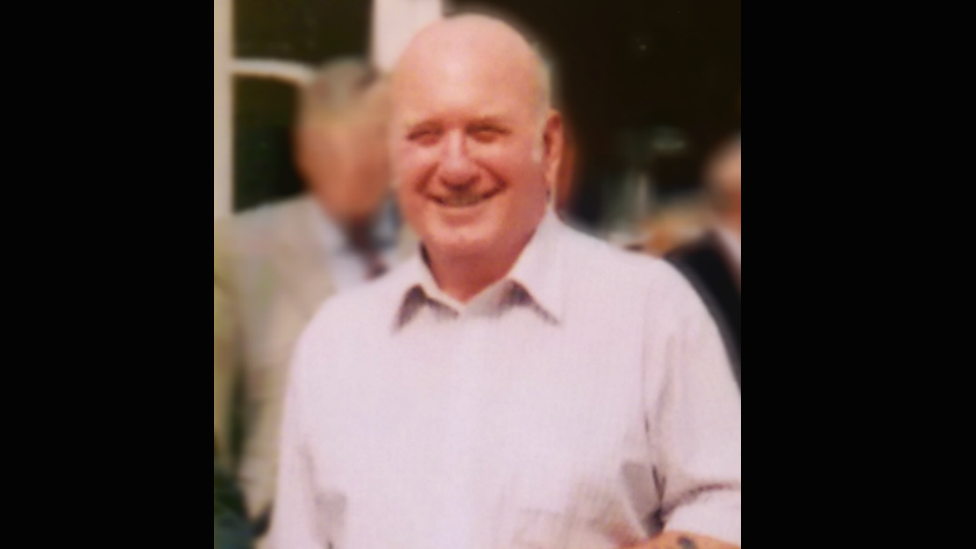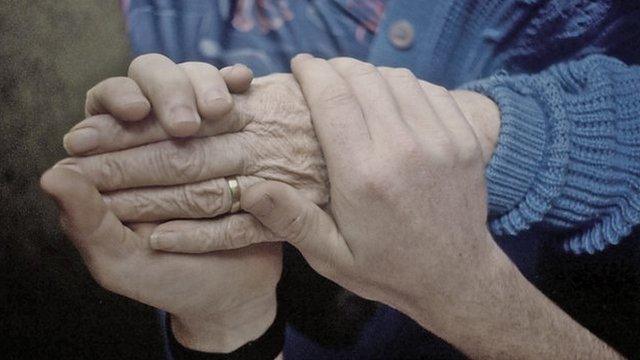Assaults between care home residents reported daily
- Published

Police recorded 1,200 assaults between residents living at care homes between 2014 and 2016, the BBC has found.
More than one assault a day was reported in England and Wales, an investigation by File on 4 revealed.
Some care workers said they were not always given full information about who might pose a risk.
The Care Quality Commission, the health regulator in England, said it was the responsibility of care providers to protect residents from harm or abuse.
Alison Wallace Wood's father, Allan Wallace, died less than three weeks after being assaulted at Mapleford Nursing Home in Accrington, Lancashire, in October 2015.
"They found my father on the floor in a very distressed state, bleeding from head wounds," she said.
"It appeared that he'd been kicked in the head and the chap was wearing steel toe cap boots which nobody was aware of. He was very, very bruised, very incoherent, semi-conscious really. Bruising around the ears, around the head, on the hands. He looked a mess."
Allan, who was 86 and had dementia, never recovered from the altercation. An inquest into his death ruled that he died from natural causes contributed to by the injuries he sustained.

Allan Wallace died shortly after being assaulted by another care home resident
The other resident also had dementia and had previously spent time in a psychiatric unit and other care homes.
He arrived at the home in July 2015 but very quickly staff asked the authorities to relocate him.
General manager Julie Hammond said: "After two weeks, we'd already served him notice knowing that we wouldn't be able to meet his needs. He was too unpredictable and he could be a danger to other residents. We wanted him moving."
The home said it was only after the assault that they found out the man had previously shown challenging behaviour.
"He'd been in two or three care homes and there'd been similar incidents, serious incidents in which there was aggression and serious injury to other service users.
"We weren't aware of that information. If we'd have known that we wouldn't have accepted that gentleman into this home," Julie Hammond said.
At the inquest it was found that additional requested external support was not provided in a "timely and appropriate manner".
A review is due to be carried out by Lancashire Safeguarding Adults Board.
Lancashire Care NHS Foundation Trust, who placed the man at Mapleford Nursing Home, said: "When challenging behaviour is a factor this can lead to difficulties and delays in trying to find suitable care home placements that are able to accommodate people with such needs."
'Kicking and pushing'
Figures obtained by File on 4 show that assaults among residents are not uncommon.
Some 28 of the UK's 45 police forces responded to Freedom of Information requests asking how many resident-on-resident assaults were recorded by the police at care, nursing and residential homes for adults during the three-year period from 2014 to 2016.
Some forces also provided brief descriptions of alleged incidents including a resident who assaulted another by kicking and pushing, causing the other resident to suffer a fractured arm.
Another said: "Care staff attends residents room to find two residents, both bloody and confused. Neither can provide an account of what happened."
What do authorities say?
Professor Martin Green, chief executive of Care England, which represents providers, said: "That it's being reported to the police is a good thing, because that shows care homes are not keeping this information to themselves.
"As we see more people with different types of dementias and exhibiting more challenging behaviours, we have to have a system that's ready to respond to that."
The Care Quality Commission (CQC), which monitors and regulates care homes in England, told the programme: "People living in care homes should feel safe and be protected from harm - and it is the responsibility of those who are in charge of running these services to ensure this happens. Should CQC find this is not happening, we will always take action that holds providers to account."
Margaret Willcox, president of the Association of Directors of Adult Social Services (ADASS), said: "In cases where a person's behaviour is more challenging for a care home to manage, it is essential the person is assessed, preferably by both a social care professional and the NHS."
ADASS added there was a need for more providers who can care for those with challenging behaviour.
Listen to more on this story on File on 4, on Tuesday 23 May at 20:00 BST on BBC Radio 4.
- Published28 February 2017
